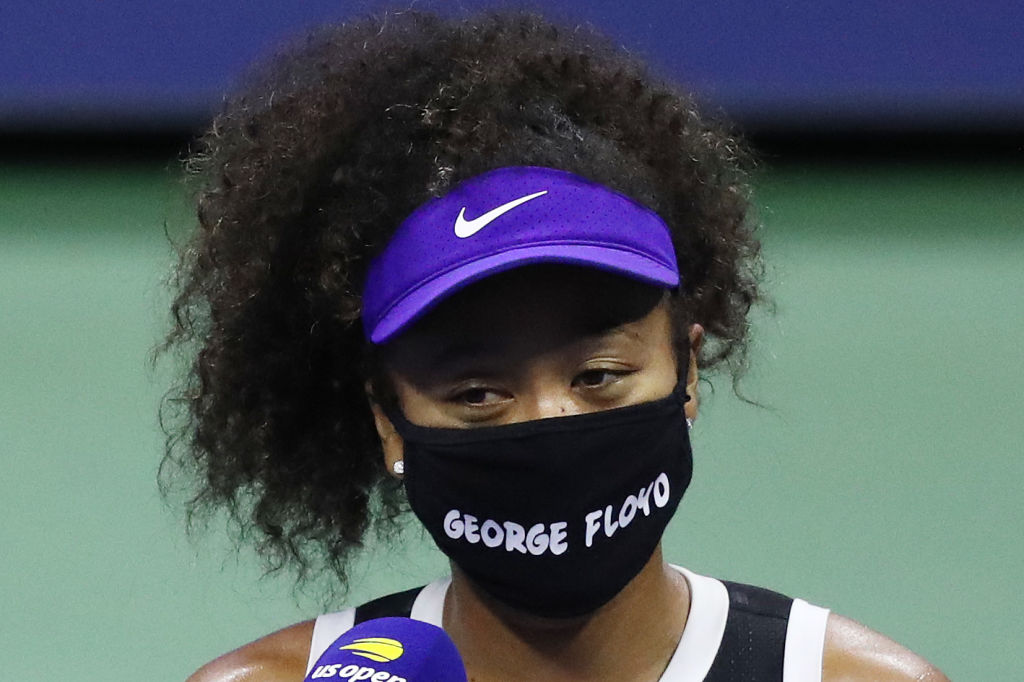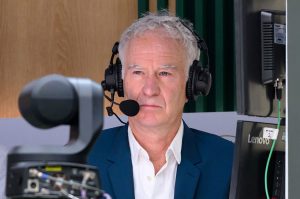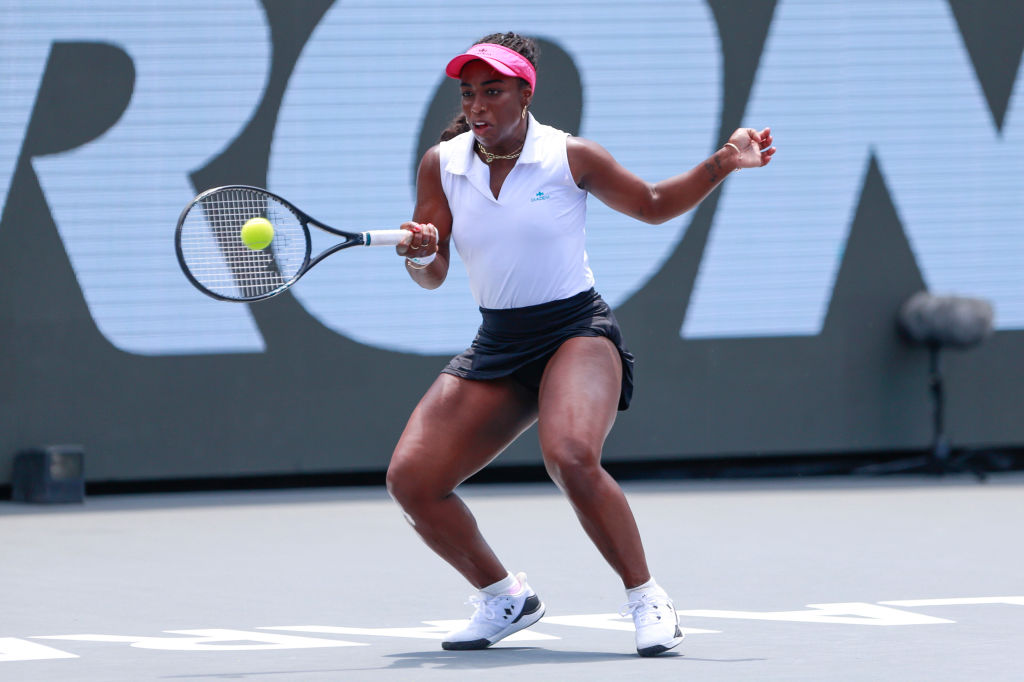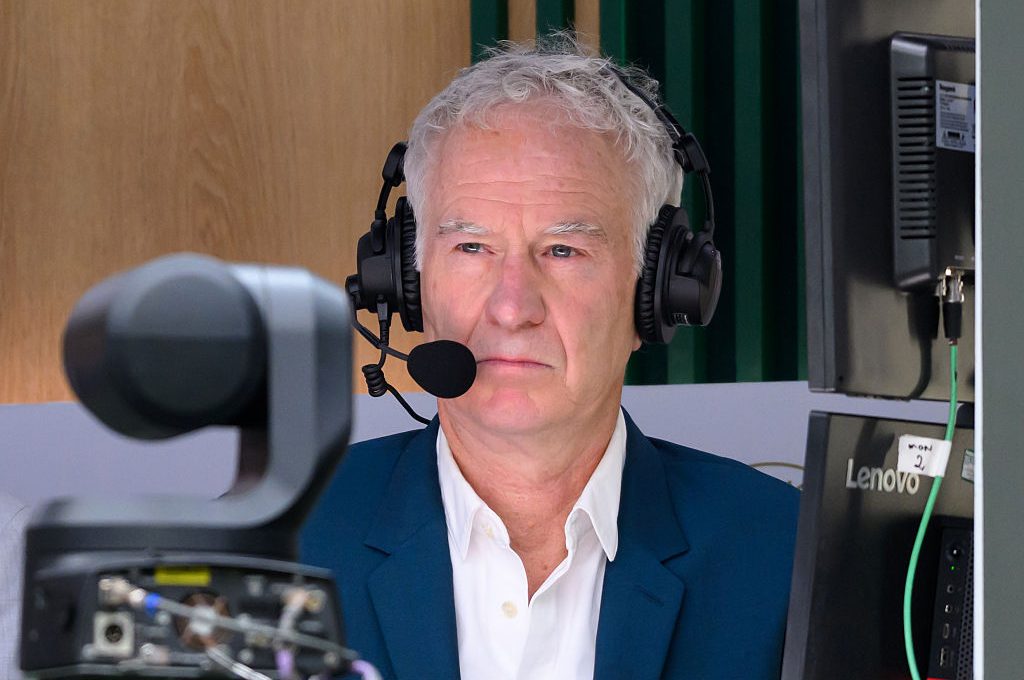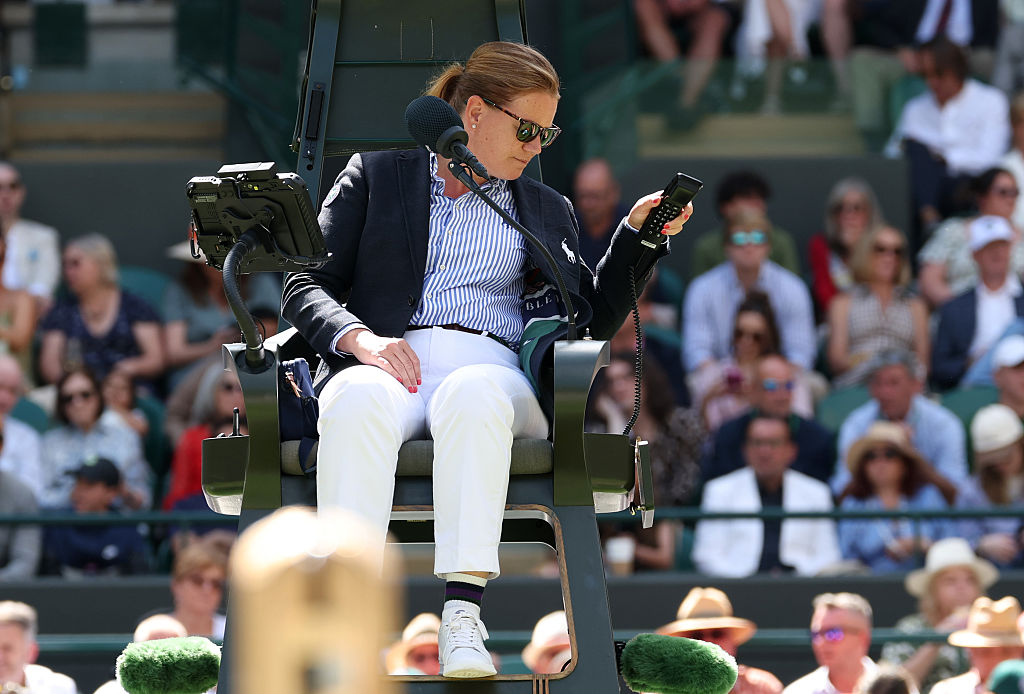‘Kawaisou’ or ‘wagamama’ (poor thing or spoiled brat)? That’s the question Japanese tennis fans have been asking ever since world number two Naomi Osaka quit the French Open, having refused to fulfill her post-match press conference obligations. The tennis superstar cited mental health problems for her reluctance to be quizzed by journalists, after which she was censored sharply and handed a $15,000 fine. She was told to comply, but has chosen not to, packing her bags and leaving instead.
Osaka has said that she suffers ‘bouts of depression’ and has confessed to a chronic shyness that prompts her to wear headphones to shut out the world whenever she is at a tournament. She feels ‘waves of anxiety’ when speaking in public, and says that even mildly critical questions after she loses create ‘self-doubt’ in her. That anxiety must have been particularly acute at Roland-Garros, where she has never gotten beyond the third round.
Ironically, Osaka initially shone at press conferences. Appearing to enjoy them, she displayed a winning sweetness and a talent for humor. She seemed something of a natural, and frequently had the pressroom in hysterics. And that is, to say the least, unusual; how many tennis players have accumulated five minutes’ worth of comedy highlights from their interviews? Not Andy Murray certainly. And Naomi Osaka is just 23.
Over the last year, though, Osaka has grown more serious and her sunny disposition has disappeared behind a cloud. She has courted controversy with political activism — wearing face masks with the names of alleged victims of racial injustice and tweeting in support of Black Lives Matter. She started complaining of her growing irritation with the press, who fixate on her Japanese background, asking her to speak in Japanese, or quizzing her on when she would next eat katsudon (her favorite Japanese food), as if she were a visitor from another world.
She indulged these inanities at first: asked by one reporter why she had the same name as a Japanese city she deadpanned that ‘everyone born in Osaka is called Osaka’. ‘Is that true?’ said the hapless reporter. ‘No’ came the reply, which got a huge laugh. Her patience eventually ran out though — and in a Nike TV commercial made last year she is seen to swipe back at stupid questions as if they were short-pitched serves to be furiously dispatched.
The sad thing is that it was perhaps Osaka’s very openness and naturalness that was her problem. She clearly hasn’t acquired the media toolkit that elite sportsmen and women use to protect themselves from the constant media attention. She seems to lack the reserve of stock answers and deflection tactics that gets tired and emotionally drained stars through their post-match pressers. Without the hard outer shell, the silly questions, which her insouciance seemed to invite, annoyed her, while the tougher questions evidently pained her.
Her critics could, with some justification, point out that Osaka has benefited hugely from the media attention, which has certainly been boosted by her good looks. She has deals with two dozen multi-nationals including Louis-Vuitton and Levi’s, and the bulk of her $55 million earnings last year came from sponsorship. On the other hand, she is very young, not especially worldly and it’s unlikely that she fully appreciated that her soul may have been part of the bargain.
Some of the tennis world’s legends have defended Osaka, including Martina Navratilova, who has expressed her sadness at Osaka’s plight and declaring that ‘we are all pulling for you’. But it’s telling that support from still active players has been more equivocal. ‘I’m thick’ said Serena Williams (presumably referring to her resilience) before sympathizing but stating that press attention made her stronger, suggesting that Osaka may just have to deal with it. Similarly, French open champion Rafael Nadal and number one-ranked Ash Barty also offered sympathy, but indicated that doing interviews is part of the job.
It’s unclear if Osaka will return to the press room for her next engagement in a few weeks: Wimbledon. But whatever happens, those taking the long view might see something positive emerging from Osaka’s stance. As with the Super League controversy in European soccer, just as we all knew the owners of the big European super clubs were primarily concerned with money, the putative breakaway at least made that plain.
So could Naomi Osaka’s breakaway prove to be constructive? Her confessed mental difficulties may spark a debate about the pressures placed on talented and marketable young sports stars growing up in public, too often seen simply as a commodity to be exploited.
And her refusal to answer questions, often demeaning ones, in what is, in effect, no more than a pseudo TV commercial with a sporting icon sat in front of a wall plastered with sponsors logos, might make us question the true nature and value of ‘press conferences’.
As for what people in Japan make of Osaka? ‘Kawaisou’ seems to be the verdict.
This article was originally published on The Spectator’s UK website.



